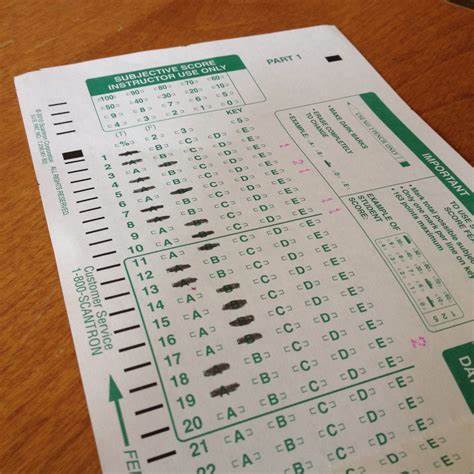How to Survive the SAT

Hey juniors! Are you ready to take the SAT on April 15th in school? For a lot of you, this will be your first experience with the almost four hour long test, and if it’s the only time you plan on taking it, then it’s important to make this one count. Here’s some advice from someone who has already suffered through the SAT once before:
- Visit the CollegeBoard site every day, or download the SAT Question of the Day app to take a peek at the types of questions found on the test. It’s an easy way to fit in SAT practice, and the repetition of question types introduces you to the instructions for each question too.
- Be aware of the three sections – math, critical reading, writing – and the different types of questions asked in each section. If you know the instructions for the questions ahead of time, you won’t have to waste time reading the instructions on the actual test.
- Practice questions from all sections, especially the writing multiple choice section. This section is comprised of questions asking you to identify errors in sentences, and there is a standard set of errors that the questions will test you on (such as parallel structure and subject-verb agreement). Practicing will allow you to get used to recognizing these errors correctly and quickly.
- For those of you who have taken SAT prep, you know of Mr. Alford’s suggestions for the vocabulary section. If you have no idea what I am talking about, below is a summary of his advice.
As you read the sentence, circle/underline the key words that will clue you in on what the word in the blank should be. Then, decide whether the blank should be replaced by a positive, negative, or neutral word. Before looking at the answer choices, think of a word that could fit in the blank, and then see if any of the answers are close to that word.
This is more of a thought process, so you don’t have to write all of it down. Here’s what it would look like if you did:
The dramatist was – over his lack of funds and his inability to sell any of his plays, and his letters to his wife reflected his unhappiness.
potential word: upset
- despondent (answer)
- supercilious
- prudent
- encouraged
- fortified
- Take a full length practice test in order to build up the endurance you will need for the actual test. There are only three five-minute breaks throughout the SAT, so it’s easy to get tired and lose focus. You can find practice tests on the CollegeBoard website and in the blue SAT books given out in SAT prep.
- Review the scoring guidelines for the essay to ensure that you know what the SAT CollegeBoard is looking for. It’s also a good idea to brainstorm several novels you could use for examples ahead of time. That way, when you take the SAT, you won’t be desperately trying to remember all the books you’ve read since middle school in order to find a good example.
- Check your calculator to make sure it’s working and bring extra batteries to the SAT just in case your calculator dies during the test. Although all math questions can be answered without a calculator, calculators undoubtedly lessen the amount of time you spend on a question.
- Finally, get to bed early the night before. Falling asleep during the SAT would probably lower your score just a little. AND DON’T FORGET TO BRING YOUR ADMISSION TICKET TO THE TEST!
There’s also another standardized test you can take in lieu of the SAT called the ACT. Although there are several differences between the two tests, most of the advice above applies to the ACT too. Whichever test you take, good luck and high scoring to you!















